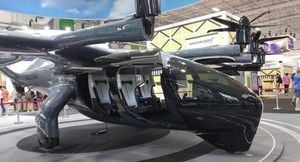The proliferation of artificial intelligence (AI) is reshaping the workplace, presenting challenges and opportunities more significant than previously imagined. According to the World Economic Forum's 2025 Future of Jobs Report, we're on the brink of a technological renaissance where AI's impact is felt across industries, prompting businesses, policymakers, and workers to brace for one of the most significant labor market shifts.
The report highlights the dual-edged sword of AI—it serves as both creator and destroyer of jobs. While AI advancements are poised to generate approximately 170 million new positions, roughly 92 million roles face displacement. The net effect translates to around 78 million new jobs, marking about 7% growth of total employment by 2030. This stark reality is echoed when considering specific roles likely to develop, especially those closely tied to AI, including positions for big data specialists and machine learning experts.
To tackle the growing skills gap, the report emphasizes the necessity of reskilling and upskilling programs. Organizations are restructuring their workforce strategies, with three-quarters planning to train existing employees to work alongside AI systems, recognizing the irreplaceable nature of human skills such as creativity, emotional intelligence, and strategic thinking. Companies are also shifting hiring practices, with 70% intending to recruit talent with AI expertise to address operational needs efficiently.
Despite these advancements, the integration of AI poses ethical dilemmas. AI systems are frequently critiqued for inheriting and amplifying existing biases found within the data used to train them. This raises significant concerns; for example, facial recognition technology has been found to misidentify individuals from certain demographics more than others, highlighting inherent biases. The implication is clear: as we create and refine AI systems, we must recognize biases not just as technical flaws, but as reflections of human cognition which can perpetuate wider societal inequalities.
To address these challenges effectively, organizations must prioritize collaborative strategies between human expertise and AI capabilities. Half of the surveyed companies are already moving toward reorienting their business models around AI, utilizing this technology as partners rather than rivals. By creating environments where human creativity complements AI efficiency, companies can drive innovation and broader economic growth.
The overarching message is clear: embracing AI not only signifies adapting to change but also highlights the opportunity for revitalization and innovation across sectors. By approaching AI's evolution with flexibility and awareness of its potential biases, businesses can align their strategies to cultivate prosperous futures. The road forward requires collaboration among corporate entities, governments, and educational institutions, ensuring the workforce is equipped with the knowledge and skills necessary to thrive alongside AI.
Conclusively, as we venture toward this new era defined by artificial intelligence, our collective emphasis must revolve around embracing change wisely. The organization of society and the way we approach learning and employment must evolve alongside this technological revolution, fostering environments where human-machine collaboration becomes the norm.
Md Abdul Malek is a graduate student at the University of California, Los Angeles.



